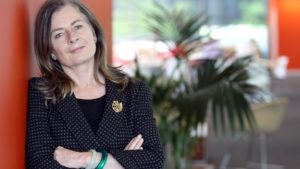Erin Brockovich in Adelaide
The Adelaide Festival of Ideas (AFoI) is delighted to announce that Erin Brockovich will make an Australian public appearance at the 2016 Adelaide Festival of Ideas (21-23 October).
A legal clerk turned environmental activist, Brockovich gained international recognition for her courageous efforts to expose the contamination of community drinking water by Pacific Gas and Electric Company.
Ms Brockovich’s successful lawsuit won a settlement of US $333m – at the time the largest settlement ever paid in a direct-action lawsuit in US history.
In the year 2000, her story became the Hollywood film, Erin Brockovich. This Oscar winning production catapulted the activist to media stardom. She then hosted the TV series Challenge America with Erin Brockovich on ABC and Final Justice on Zone Reality.
“Erin Brockovich is a role model for informed, activist citizens everywhere” says AFoI founder and board Chairman, Greg Mackie. “We are thrilled to be bringing her to Adelaide for our festival”.
The complete 2016 AFoI program will be released in mid-September. In the meantime, interested citizens can head to the AFoI website and register their interest by joining the free AFoI e-news.
The 2016 Adelaide Festival of Ideas is proud to be a partner with Open State – a 10 day series of conferences and public events.


